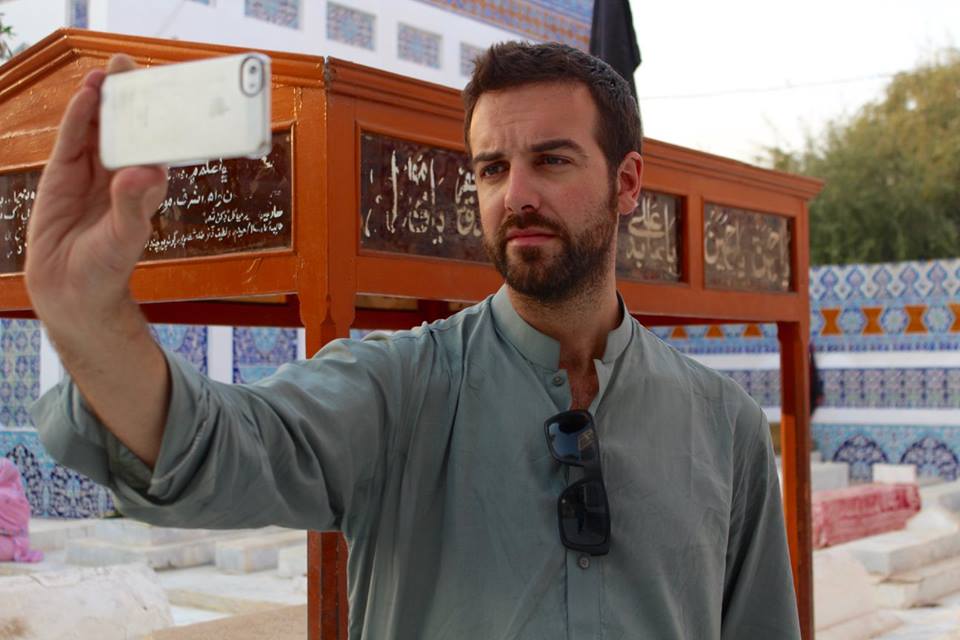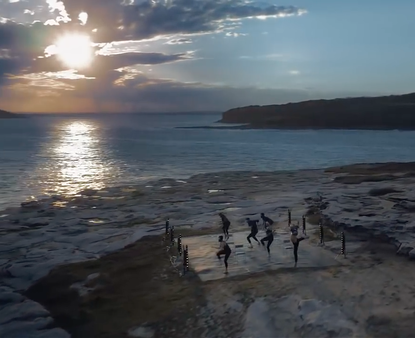
It’s difficult to imagine such a bloodthirsty attack taking place at beautiful Nanga Parbat (Image: Wikimedia)
The vicious massacre of ten foreign tourists and their Pakistani guide at a mountain base camp in Gilgit Baltistan last week was shocking on many levels, not least of all as a brazen attempt to discourage foreigners from visiting Pakistan. The fact that it occurred in mostly peaceful Gilgit Baltistan, the fact that Tehrik-i-Taliban Pakistan claimed responsibility so promptly afterwards, that it was apparently “in retaliation” to a US drone attack weeks earlier, although the closest link any of the climbers had to the United States was one Chinese mountain climber who was a dual national American. It was, compared with the daily drip feed of attacks taking place in FATA, an attack to make headlines, and to grab the attention of both Pakistan’s and the world’s media.
So it was then logical that the questions would flow. Why this group of people? How did the attackers find them, and how did they get inside the camp without resistance? Why now? Why remote Nanga Parbat in Gilgit Baltistan? And most importantly, who was behind this? Tehrik-i-Taliban Pakistan claimed responsibility by saying that it was their way of pressuring the international community to discontinue their tacit support for murders by American drones. However the picture became much more complicated when it was learned that another group, Jundallah, had also claimed responsibility hours earlier. This naturally cast some doubt over the Taliban claim, and moreover fed into the sneaking suspicion that the attack was the work of a group of maverick gunmen, perhaps with different motives. Perhaps this ragtag group of murderers were acting on behalf of a foreign government – India, the US, anyone who wanted to see Pakistan suffer.
The ‘foreign hand’ would certainly make sense – there are no shortage of people abroad who would like to see Pakistan’s international reputation further muddied. What better way to do it than to stage an attack on intrepid travellers, some of the last ones still coming in as our tourism industry continues to struggle.The idea that Indian security forces are acting to destabilise Pakistan is not a new one, but this would surely take things to a new level if it were the case. The US could equally be behind it, to encourage Pakistan’s economic dependence on Washington. Both India or the US would be happy to drive a wedge between Pakistan and China, something this attack threatened to do since three of the deceased were Chinese nationals (along with one survivor). Pakistan and China’s growing cooperation is being seen as a rising threat in India, and Chinese power anywhere is an affront to the political hegemony that the US has enjoyed for years in parts of the world. Who knows? It could have even been Israel – you know how us Pakistanis hate Israel! Yeah, they could’ve done it…
If all this sounds a little paranoid, you’re both completely right and completely wrong. It is paranoid in the sense that it envisions a world where the entire international community is against Pakistan. Foreign relations have certainly been at a low ebb for several years now, but there are much more demonised countries around the world which aren’t being subjected to such bloody internal meddling. It is also not a paranoid attitude at all if you consider that by blaming a foreign hand, we are overlooking our own essential duty to protect ourselves. In fact, someone who is truly paranoid might be tempted to lock up their valuables in their own house, before setting off to war in another neighbourhood. Ignoring our domestic security responsibilities is the equivalent of leaving a terminally ill patient in a hospital bed without medicine while we argue with the doctor about why they’re in that situation. It misses the point, and it leaves the way open for more attacks to occur while we sit around in a cloud of words.
Foreign powers will always try to meddle in other nations’ affairs – that’s the reality of politics and diplomacy. It might not be nice, but it is a fact – and it has been for millennia. The best hope that a nation has in the face of all of this is to remain strong, and for the security forces to defend the safety and honour of the people. A few more questions were asked in wake of the Nanga Parbat massacre, ones that might not go over so well with some of our proudest citizens. Nevertheless these are questions that are worth asking. How, for example, did a group of murderers get all the way up to Nanga Parbat while passing through some of the most secure terrain in the country? What happened to the security at the camp? How did they know who would be there? And where did they escape to? Where were the intelligence forces in all of this, listening in on plans and preparing to thwart the attack? Why are there so many people running around with guns who would commit such an atrocity? In short – how could it happen?
We can probably guess at the answers to some of these questions, and we can be sure of the answers to some others. Thankfully, there are some cool heads who, rather than racing off to war with another country, have correctly asked these questions. All nations try to interfere with other nations – we need to be strong enough to prevent it from happening here. And if we’re not strong enough to stop outsiders attacking us from within, then that’s a problem that needs to be remedied. So many of us are prepared to suggest a ‘foreign hand’ was involved in this attack – but is that really the point? Imagine I sit down for an arm wrestle with my opponent, a foreigner. He has been lifting weights for years, while I haven’t trained for as long as I can remember. If my arm muscles aren’t strong enough to defeat him, I will finish up with my arm down on the table, and he will have won. While the strength of his ‘foreign hand’ (or entire arm, for that matter) has won the game, it has humiliated me, and my weakness is laid bare for all to see. I can blame my opponent all I like, but in the end there is only one thing responsible for my loss – and it’s not his ‘foreign hand’.






0 Comments